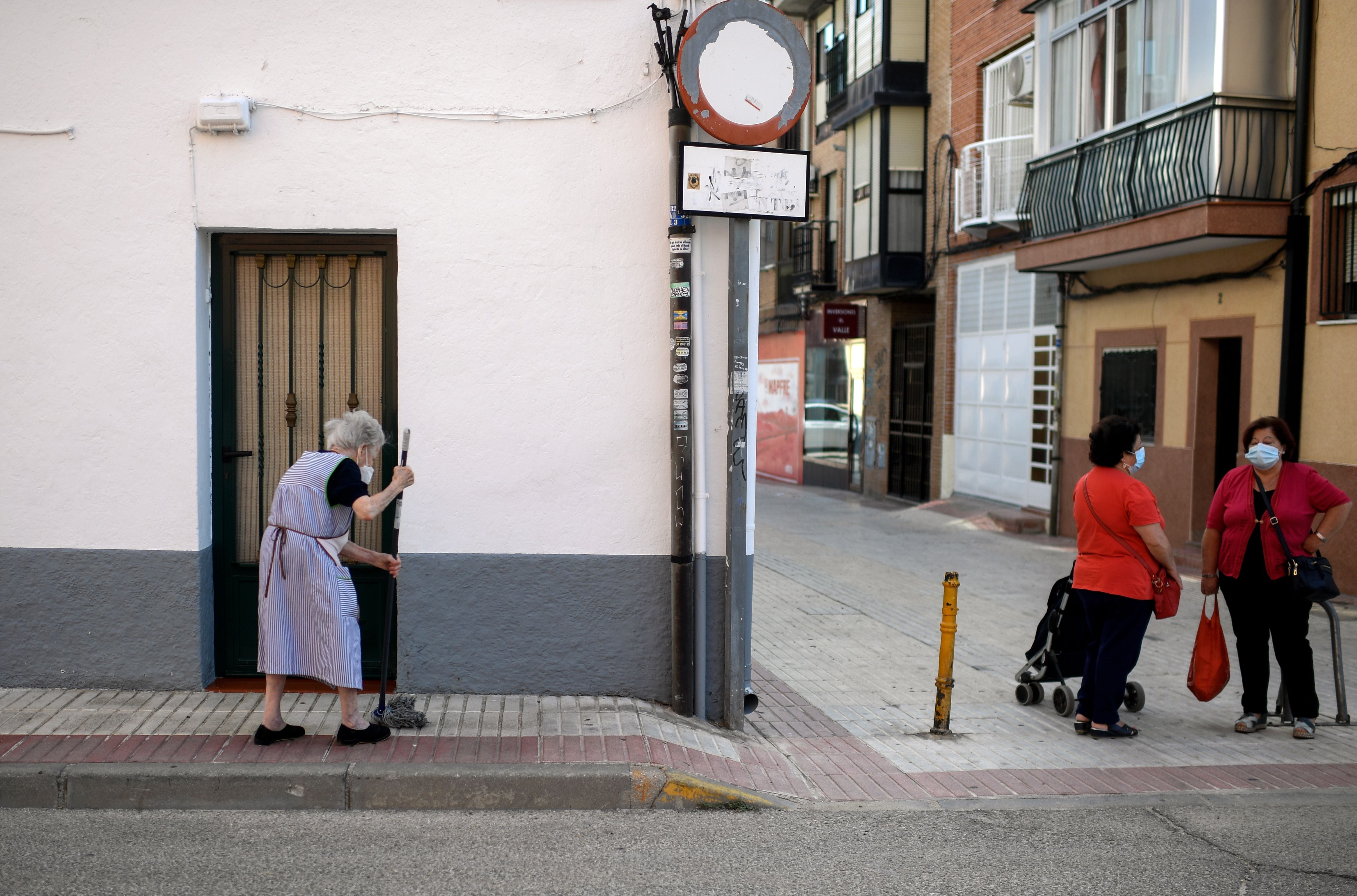Only one in eight countries safeguarding women against social impacts of coronavirus, UN study finds
Only 48 nations – less than a quarter – deemed services which address violence against women and girls as a key element of their national and local coronavirus response plans

Your support helps us to tell the story
From reproductive rights to climate change to Big Tech, The Independent is on the ground when the story is developing. Whether it's investigating the financials of Elon Musk's pro-Trump PAC or producing our latest documentary, 'The A Word', which shines a light on the American women fighting for reproductive rights, we know how important it is to parse out the facts from the messaging.
At such a critical moment in US history, we need reporters on the ground. Your donation allows us to keep sending journalists to speak to both sides of the story.
The Independent is trusted by Americans across the entire political spectrum. And unlike many other quality news outlets, we choose not to lock Americans out of our reporting and analysis with paywalls. We believe quality journalism should be available to everyone, paid for by those who can afford it.
Your support makes all the difference.Only one in eight countries have provisions to safeguard women against the social and economic repercussions of the coronavirus crisis, a United Nations study has found.
Researchers looked at measures for tackling violence against women and girls, which has surged in the wake of the public health crisis, supporting informal unpaid care work, which women have borne the brunt of during lockdown – as well as mechanisms to boost women’s economic security.
The study, which analysed 206 countries and territories, discovered a fifth have no measures to tackle the Covid-19 emergency which take gender into account.
Phumzile Mlambo-Ngcuka, UN Women executive director, said: “It’s clear that the Covid-19 pandemic is hitting women hard – as victims of domestic violence locked down with their abusers, as unpaid caregivers in families and communities, and as workers in jobs that lack social protection.”
Only 48 nations – less than a quarter – deemed services which address violence against women and girls as a key element of their national and local coronavirus response plans and very few of the countries properly funded the provisions.
Achim Steiner, of the UN Development Programme, said: “The Covid-19 crisis provides an opportunity for countries to transform existing economic models towards a renewed social contract that prioritises social justice and gender equality.”
The research, carried out by UN Women and the UN Development Programme, has launched what it refers to as a Covid-19 Global Gender Response Tracker which supports governments to introduce measures to tackle the disproportionate impact the pandemic is having on women.
Measures span from helplines to shelters for domestic abuse victims, cash transfers for women, childcare services or paid family and sick leave.
It comes after a UN chief recently warned coronavirus has rolled back decades of “fragile progress” for women and the damage could take generations to recover from.
Antonio Guterres, the UN secretary general, said enduring inequalities and prejudices mean women have not received the recognition they deserve for playing a critical role on the front lines of the pandemic as key workers, as well as taking on additional caring duties in the home.
Mr Guterres noted that while 70 to 90 per cent of healthcare workers are women, only 30 per cent are in senior decision-making positions.
“Without a concerned response, we risk losing a generation or more of gains”, he said.
The UN chief added: “Today, millions of teenage girls around the world are out of school, and there are alarming reports of an increase in teenage pregnancies in some countries. We know from the Ebola outbreak in west Africa that when teenage girls leave school, they may never return.”


Join our commenting forum
Join thought-provoking conversations, follow other Independent readers and see their replies
Comments